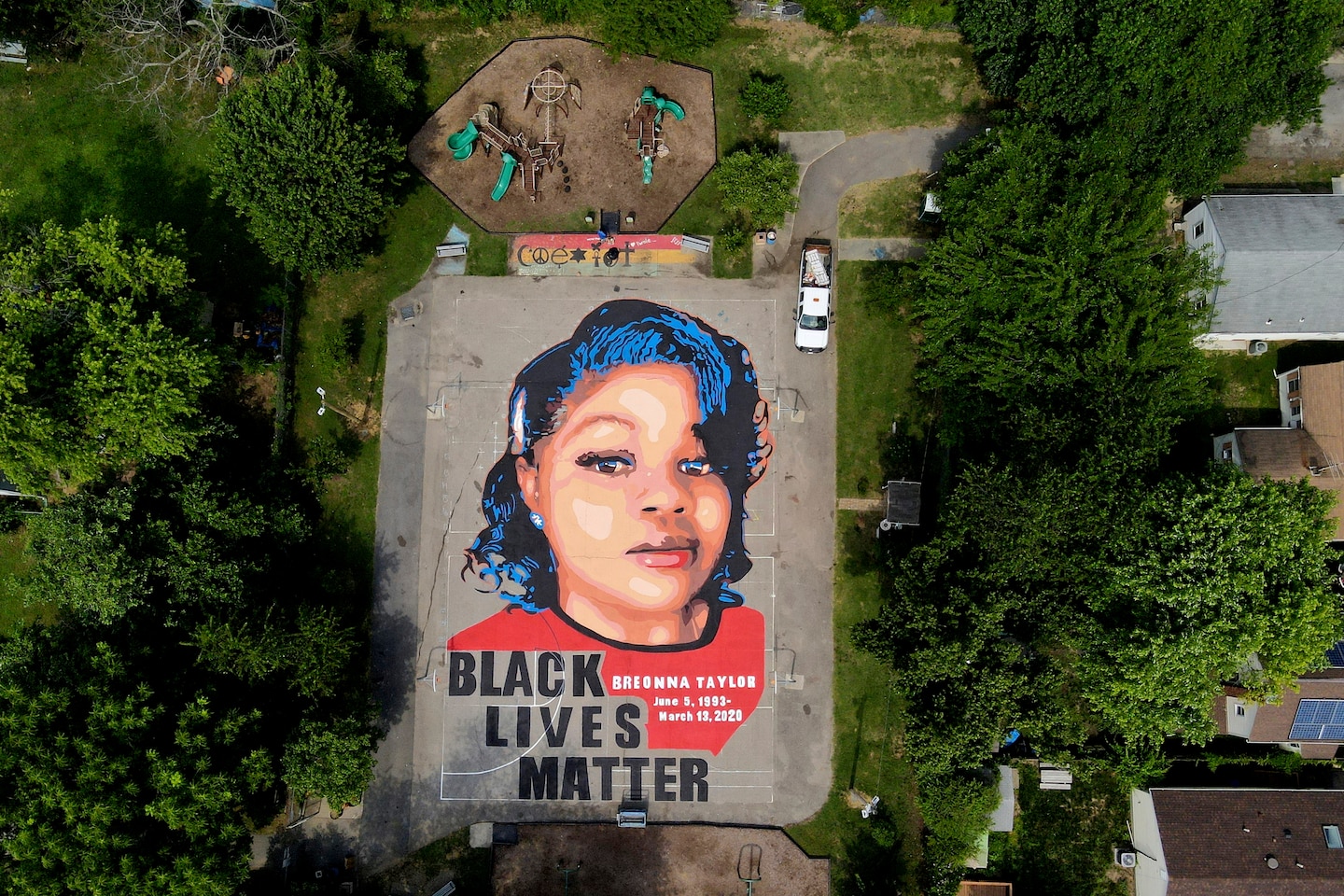Black Lives Matter isn’t complete without #SayHerName

Historically, black women have been pushed to the margins of our protest moments. This time black women’s activism is front and center.
Consider #SayHerName, which has emerged as a parallel rallying cry for black women killed, assaulted and raped by police. This month also marks the day five years ago that Sandra Bland, a 28-year-old black woman, was found dead in a jail cell days after being taken into custody in Texas over the trivial infraction of failing to signal a lane change.
The cases have kept coming. Atatiana Jefferson, Charleena Lyles, India Kager. The shooting death of Breonna Taylor by Kentucky police in March is the most recent and high-profile example. On Twitter, celebrities, journalists, artists and countless others have indeed been saying her name, along with the viral Twitter demand: “Arrest the cops who killed Breonna Taylor.” Artists have been making sure the world sees her face, too. Instagram is full of beautiful portraits of Taylor. Over the Fourth of July weekend, artists created a 7,000-square-foot mural of her in Annapolis.
But still, for all the retweets and Instagram shares, Taylor’s killers walk free. For all the visibility of black female activists such as Tometi, Garza, Patrisse Cullors, Angela Davis and others in this moment, justice and protection remain elusive for black women.
And a challenging question has arisen: Are the memes and hashtags helping?
Huffington Post culture writer Zeba Blay is among those who argue that the “memeification” of Taylor’s death needs examination. “Turning Breonna Taylor into a meme, then, risks turning the conversation around what justice looks like for her into a temporary fad,” she writes. “Other than the firing of one police officer involved in her killing, there have been no real moves toward rectifying the situation. And so, as ‘Arrest the cops who killed Breonna Taylor’ gets repeated over and over again, it becomes an abstraction, it begins to lose meaning.” Blay cites examples of female celebrities and models posing in coy sexy photos with captions that play on variations of a theme: “Now that I’ve got your attention, arrest the cops who killed Breonna Taylor.”
Blay is right that Taylor’s death has in some ways been “commodified, trivialized and used as fodder for performative allyship.” But it is also true that activists have taken targeted steps to pressure officials to act in her case. Just this week, more than 80 people protested outside the Louisville home of Kentucky Attorney General Daniel Cameron.
No, memeification of black women’s pain and death is not the reason truth and justice have not been served in Taylor’s case, or in those of so many other black women. Rather, it is a symptom of the fact that America has never had a true national reckoning about brutality against black women, and specifically the ways that black women’s arrests, silencing, rape and killing have been instrumental to forming the rotten racial caste system we have today.
The ugly history is there to teach us. In her book “Invisible No More: Police Violence Against Black Women and Women of Color,” Andrea J. Ritchie recounts that the rape of a black woman was not a crime under the slave codes in the 1800s. Slave patrols — precursors of today’s police forces — whipped and raped black women with impunity. After chattel slavery ended, black women were expected to serve as docile domestic workers in white homes, and those who defied those expectations could be punished severely. Citing the work of historian Sarah Haley, Ritchie explained how, after the Civil War, black women in Atlanta faced arrests and fines simply for being unemployed. In 1893 in the city, black women were 6.4 times as likely as white women, and black girls 19 times as likely as white girls, to be arrested. Black women were painted as prostitutes, as cruel to their children, as keen to recruit white girls into sex work — all of which served to reinforce the point: Black women were “subjects outside of the protected category, ‘woman.’”
It is this protected category that we still struggle to enter. Rarely, if ever, does mainstream society rally to the side of missing, exploited or murdered black women, a tragic fact exploited by abusers such as R. Kelly or serial rapist cops such as Daniel Holtzclaw.
How do we construct a society that truly protects black women? That imposes timely and appropriate consequences to those, black and white, who abuse us? Hard questions for which we still seek answers, but I know one thing: The fullness of #BlackLivesMatter will never be realized until we have them.
Read more:






